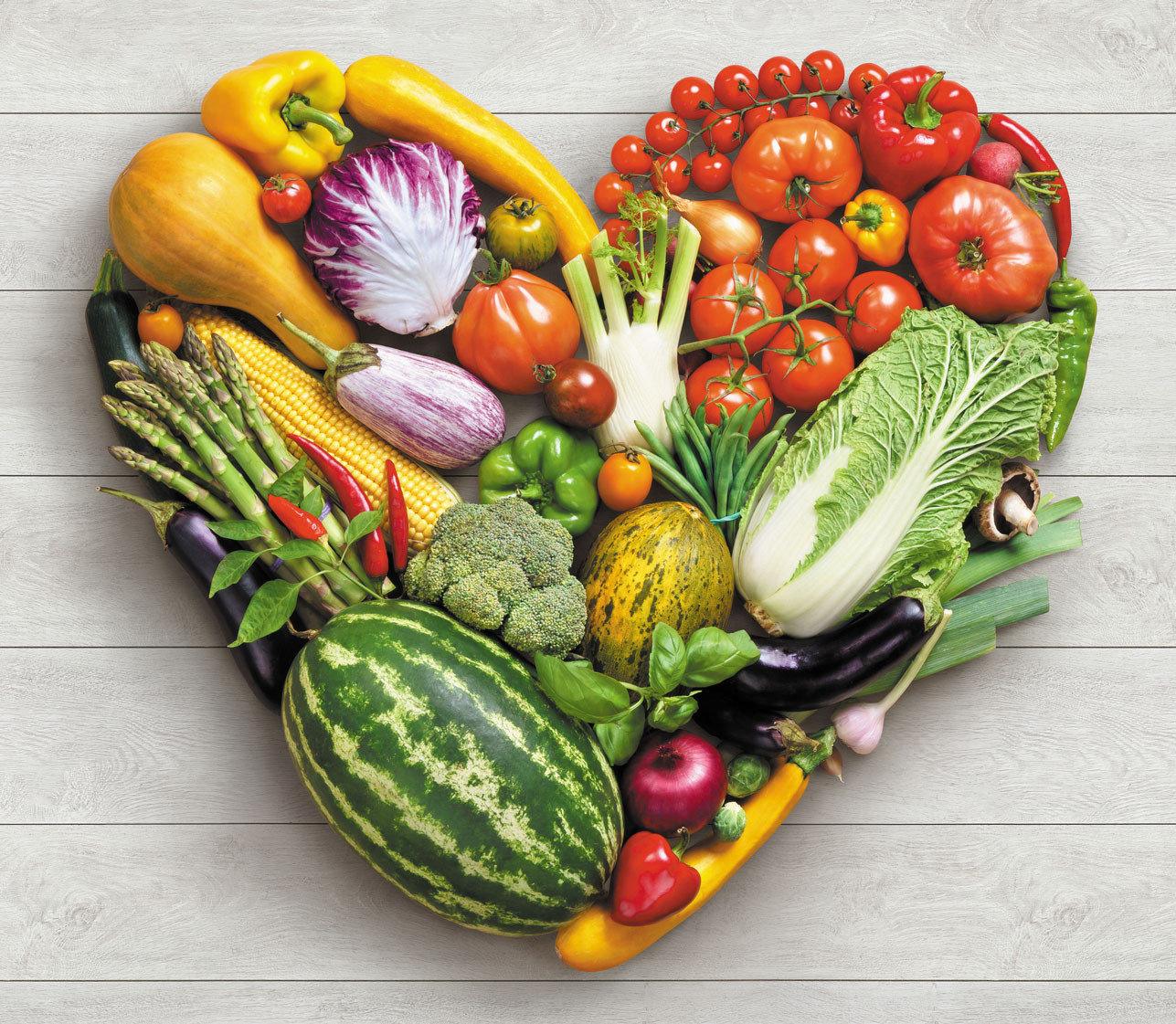Dietitian-Approved Sugar Free Sauces for Clean Eating Success
Dietitian-Approved Sugar Free Sauces for Clean Eating Success
Blog Article
Everything About Healthy And Balanced Food: Benefits of Enjoying Plant Based Alternatives
The conversation bordering plant-based diets has gotten significant interest in recent times. Many individuals are discovering the potential health benefits, dietary advantages, and environmental influences associated with these nutritional selections. As individuals become a lot more conscious of their food's influence on well-being and sustainability, inquiries arise regarding the functionalities of embracing such a way of living. What certain modifications can one expect, and exactly how might these choices improve not only individual health and wellness but additionally the planet's future?
Recognizing Plant-Based Diet Regimens
Although lots of people link plant-based diet plans mostly with vegetarianism or veganism, these diet regimens can include a large range of eating patterns that prioritize entire, minimally refined plant foods. Such diet regimens frequently include fruits, veggies, whole grains, seeds, nuts, and legumes, while eliminating or restricting animal items. This adaptability enables individuals to tailor their dietary choices according to dietary needs and individual choices. Some may take on a mainly plant-based diet plan while still periodically consuming meat or dairy, typically referred to as a flexitarian strategy. The emphasis continues to be on including even more plant foods, which can bring about a varied variety of dishes and tastes. Recognizing these different analyses of plant-based consuming is necessary for appreciating its availability and charm in modern food culture.
Health Advantages of Plant-Based Foods
The wellness benefits of plant-based foods are considerable, providing a nutrient thickness benefit that sustains overall wellness. Research indicates that these foods can improve heart health and wellness and play an essential role in reliable weight monitoring. By including more plant-based options, individuals may boost their dietary choices and promote long-lasting health and wellness.
Nutrient Density Benefit
Nutrient density plays an important function in the health and wellness advantages of plant-based foods, making them an engaging selection for those looking for a well balanced diet plan. Plant-based foods, such as fruits, vegetables, legumes, nuts, and entire grains, are frequently abundant in crucial vitamins, minerals, and anti-oxidants while being reduced in calories. This high nutrient density allows individuals to eat less calories while still satisfying their nutritional demands. Additionally, these foods are packed with nutritional fiber, advertising digestive system wellness and aiding in weight monitoring. By integrating nutrient-dense plant-based choices, consumers can boost their general health, sustain their body immune systems, and reduce the risk of persistent illness. Ultimately, the nutrient density of plant-based foods highlights their significance in a health-conscious lifestyle.
Heart Wellness Enhancement

Weight Monitoring Support
In enhancement to promoting heart health, a plant-based diet can substantially help in weight monitoring. This dietary technique highlights whole foods such as fruits, veggies, legumes, nuts, and entire grains, which are normally reduced in calories and higher in fiber contrasted to animal-based products. The high fiber content aids enhance satiation, lowering total calorie consumption. Plant-based diet plans are frequently rich in vital nutrients while reduced in harmful fats, making it simpler to maintain a healthy and balanced weight. Research suggests that people that adopt a plant-based lifestyle often tend to have lower body mass indexes (BMIs) and experience more effective weight reduction contrasted to those who take in meat-heavy diet plans. Welcoming plant-based choices is a strategic selection for effective weight management.
Nutritional Worth of Plant-Based Ingredients
Plant-based components are rich in essential nutrients, using a diverse array of vitamins, minerals, and antioxidants that contribute to total health. A contrast of healthy protein resources exposes that while pet products are commonly seen as superior, numerous plant-based alternatives give sufficient healthy protein and various other advantageous substances. Recognizing the dietary worth of these components can aid people make educated nutritional selections.
Crucial Nutrients in Plants
Nutrient-rich ingredients discovered in plants provide a diverse array of important minerals and vitamins that add substantially to total wellness. These components are rich in vitamins A, C, and K, which sustain immune feature, vision, and blood clotting, respectively. Furthermore, plants give important minerals such as potassium, magnesium, and calcium, essential for heart health, muscular tissue feature, and bone stamina. The existence of fiber in plant-based foods aids food digestion and advertises a healthy intestine microbiome. Anti-oxidants, discovered generously in vegetables and fruits, assistance combat oxidative stress and anxiety and reduce swelling. Several plant foods are low in calories yet high in nutrients, making them a superb option for those looking for to maintain a healthy and balanced weight while making sure ideal nutrient consumption.

Comparing Healthy Protein Sources
Protein resources differ substantially in their dietary accounts, with plant-based components using special benefits. Unlike animal proteins, which typically have hydrogenated fats and cholesterol, plant healthy proteins have a tendency to be lower in these unhealthy components. Legumes, nuts, seeds, and entire grains are abundant in necessary amino acids, fiber, vitamins, and minerals. As an example, lentils supply high healthy protein web content along with considerable iron and folate, while quinoa is a total protein, supplying all nine vital amino acids. In addition, plant-based proteins are commonly gone along with by anti-oxidants and phytochemicals that sustain general wellness. The change to plant-based protein resources not just enhances dietary consumption yet likewise aligns with lasting dietary methods, minimizing ecological impact and advertising long-term health and wellness benefits.
Ecological Influence of Plant-Based Eating
As recognition of climate adjustment grows, numerous people are exploring lasting dietary selections that can greatly minimize their environmental footprint. Plant-based consuming has become a considerable contributor to minimizing greenhouse gas emissions, which are mainly related to animals production. The growing of fruits, vegetables, legumes, and grains normally requires fewer resources, such as water and land, contrasted to animal farming. Furthermore, plant-based diet regimens can lead to decreased logging, as less land is needed for grazing livestock or growing pet feed. By changing towards plant-based alternatives, customers can sustain biodiversity and promote healthier ecological communities. In general, accepting plant-based consuming not just advantages individual health however likewise stands for an important step towards ecological sustainability and preservation efforts.
Overcoming Common Misconceptions
While numerous people identify the advantages of a plant-based diet regimen, several misunderstandings usually hinder them from fully welcoming this lifestyle. A common belief is that plant-based diets lack enough healthy protein; nonetheless, numerous plant resources, such as beans, nuts, and tofu, give sufficient healthy protein. Furthermore, some think that this diet is expensive, when in reality, staples like beans, rice, and seasonal vegetables can be quite budget-friendly. An additional misconception is that plant-based consuming is excessively restrictive, whereas it actually offers a varied selection of foods and flavors. Lots of fret that a plant-based diet might lead to shortages, yet with appropriate planning, people can obtain all essential nutrients, including minerals and vitamins, while delighting in a wide selection of delicious dishes. Broad Tips for Transitioning to a Plant-Based Way of living
Making the change to a plant-based way of living can be an enriching experience, though it usually needs some guidance to browse the first changes. People are encouraged to begin gradually, including even more fruits, veggies, legumes, and entire grains right into their meals while lowering meat and dairy usage. Dish planning is essential; preparing a regular food selection can assist reduce the change and prevent final unhealthy options. Checking out new recipes and cooking techniques can likewise boost the experience and maintain excitement about plant-based eating. Furthermore, joining assistance teams or areas can provide motivation and share beneficial pointers. Lastly, remaining informed about nutrition assurances well balanced dishes, preventing deficiencies while fostering a healthy, satisfying plant-based lifestyle.
Delicious Plant-Based Dish Concepts
Checking out delicious plant-based meal concepts can inspire individuals to accept an extra nourishing diet regimen. One prominent option is a hearty quinoa salad, including cherry tomatoes, cucumber, and a vibrant lemon-tahini clothing. An additional fave is a savory lentil stew, loaded with carrots, celery, and fragrant herbs, ideal for a soothing supper. For breakfast, over night oats made with almond milk, chia seeds, and topped with fresh berries give a nutritious beginning to the day. In addition, a lively vegetable stir-fry with tofu and a range of colorful veggies can be a quick yet satisfying dish. Velvety avocado salute on whole-grain bread, sprayed with seeds and spices, uses a straightforward yet flavorful snack. These meals showcase the range and richness of plant-based consuming.

Frequently Asked Inquiries
Can a Plant-Based Diet Plan Provide Sufficient Protein?
The concern of whether a plant-based diet can supply sufficient protein is typical. Countless sources, including legumes, nuts, seeds, and whole grains, can meet healthy protein needs properly, sustaining a nourishing and balanced diet regimen for people.
Are Plant-Based Diet Regimens Appropriate for Kid?
The suitability of plant-based diets for youngsters depends upon mindful planning. Sufficient nutrients must be ensured, including proteins, minerals, and vitamins. With correct assistance, such diet regimens can support healthy growth and growth in kids.
Just how Do I Eat in restaurants on a Plant-Based Diet regimen?
Eating in restaurants on a plant-based diet regimen involves looking for restaurants with diverse food selections, requesting alterations, and exploring vegan-friendly choices. Preparation ahead and interacting nutritional preferences can improve the eating experience while Plant Based Chicken maintaining dietary selections.
What Prevail Allergens in Plant-Based Foods?
Typical irritants in plant-based foods include soy, gluten, nuts, and seeds - Sugar Free Sauces. Individuals adhering to a plant-based diet plan must be conscious of these allergens and review labels very carefully to avoid negative reactions and ensure secure intake
Can Plant-Based Diets Assist With Weight Loss?
Research study indicates that adopting a plant-based diet may assist in fat burning due to its usually reduced calorie thickness and greater fiber material. This mix can boost satiety, assisting people handle their caloric intake successfully. Lots of individuals link plant-based diet regimens mostly with vegetarianism or veganism, these diet regimens can incorporate a broad variety of eating patterns that prioritize whole, minimally processed plant foods. Nutrient thickness plays an important role in the wellness advantages of plant-based foods, making them an engaging option for those seeking a balanced diet. Plant-based diets have actually been revealed to substantially boost heart health, as they frequently include elements that sustain cardio function. In addition to advertising heart health and wellness, a plant-based diet regimen can significantly help in weight administration. A typical idea is that plant-based diet plans lack enough healthy protein; nevertheless, various plant sources, such as beans, nuts, and tofu, offer adequate healthy protein.
Report this page